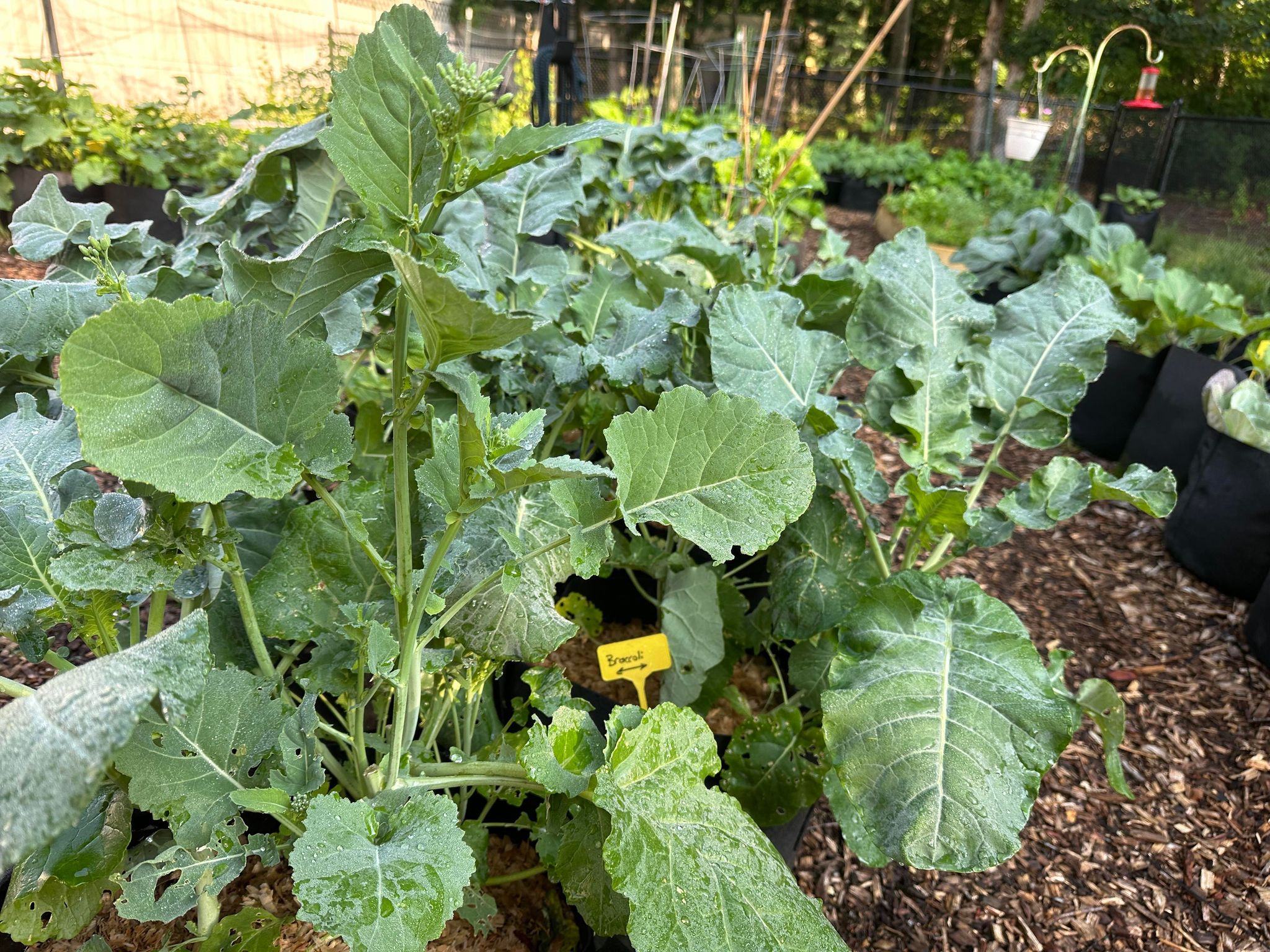Hey Jersey gardeners, it’s getting hot out there and you might be dealing with bolting broccoli as the weather warms up.
As a dedicated gardener, it can be disheartening to witness your beloved broccoli plants suddenly bolt, sending up tall flower stalks instead of producing the desired dense heads. Broccoli bolting is a natural response to certain environmental conditions, but understanding its causes and implementing appropriate measures can help you prevent or manage this issue. In this blog post, we will delve into the reasons why broccoli bolts and provide practical tips on how to address this challenge effectively.
Broccoli is a cool-season crop that thrives in moderate temperatures. When exposed to prolonged periods of heat, especially temperatures above 75°F (24°C), the plant may perceive this as a signal to reproduce and initiate flowering. To combat temperature-induced bolting, consider planting broccoli as an early spring or fall crop when temperatures are cooler. Additionally, shading the plants during peak heat hours or employing row covers can help mitigate temperature stress.
Broccoli is sensitive to day length, and certain varieties are more prone to bolting when daylight hours exceed their optimal range. Some broccoli cultivars are categorized as “early” or “late” based on their day-length preferences. By selecting the appropriate variety that matches your local day-length conditions, you can reduce the likelihood of bolting. Check with your local cooperative extension or seed supplier for recommended varieties suitable for your region.
Imbalanced soil fertility can contribute to broccoli bolting. Excessive nitrogen and low phosphorus levels in the soil may promote leafy growth at the expense of head formation, leading to premature flowering. Conduct a soil test to determine nutrient levels and adjust accordingly. Provide a balanced fertilizer, paying attention to phosphorus and potassium, to support healthy plant development and discourage bolting.
Inconsistent or inadequate watering practices can induce stress and trigger bolting. Broccoli plants require consistent soil moisture, especially during head development. Water deeply and regularly to maintain even moisture levels, aiming for approximately 1-1.5 inches of water per week. Mulching around the plants can help retain moisture and regulate soil temperature. Be mindful of overwatering, as waterlogged soil can also cause stress and increase the risk of diseases.
Harvesting broccoli heads at the appropriate time is crucial for preventing bolting. Delaying the harvest beyond the optimal stage can signal to the plant that it should complete its lifecycle and produce seeds. Regularly check your broccoli plants and harvest the heads promptly when they reach their desired size and tightness. Removing the main head often encourages the growth of smaller side shoots, allowing for an extended harvest period.
Implementing proper crop rotation practices can help break the cycle of bolting. Avoid planting broccoli or other related brassicas in the same area year after year. Rotate your crops, ideally on a three-year cycle, to prevent the buildup of diseases and pests that can stress the plants and contribute to bolting. Succession planting, where new crops are planted in stages, can also ensure a continuous supply of broccoli and minimize the risk of bolting due to maturity.
While broccoli bolting can be frustrating, understanding its causes empowers you to take proactive measures to prevent or manage the issue effectively. By considering temperature stress, day length preferences, nutrient imbalances, moisture management, timely harvesting, crop rotation, and succession planting, you can optimize your broccoli cultivation and enjoy a bountiful harvest of delicious, non-bolting heads.
Remember to select suitable varieties, create optimal growing conditions, and monitor your plants closely.
